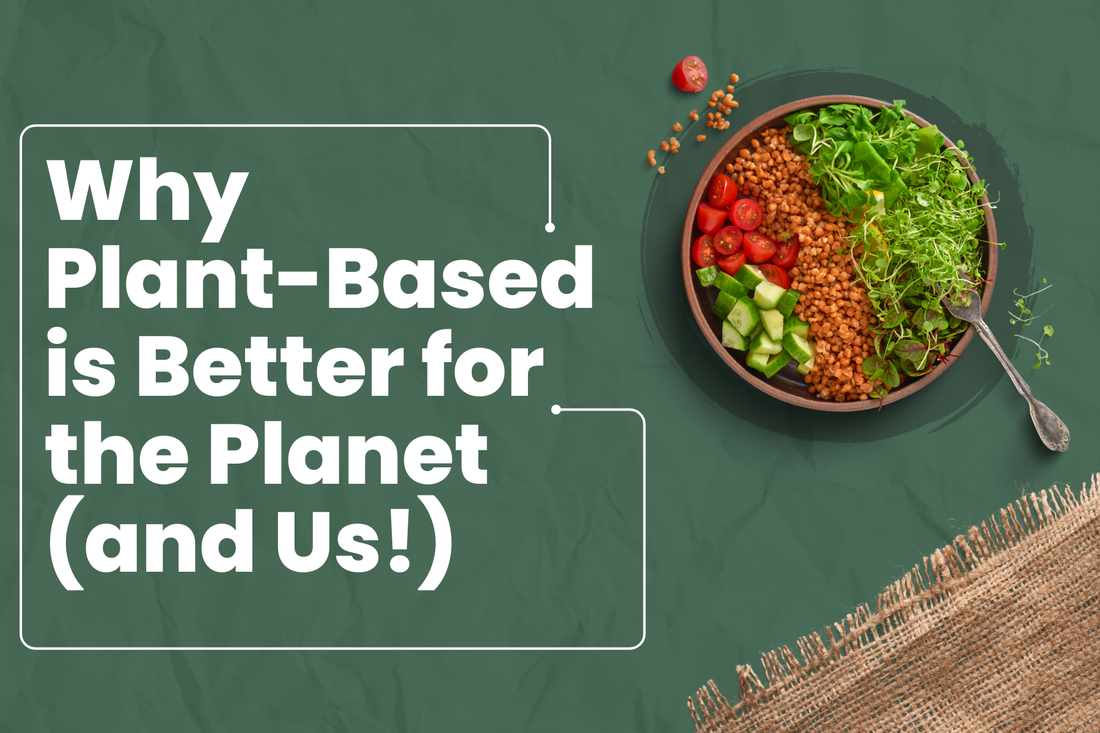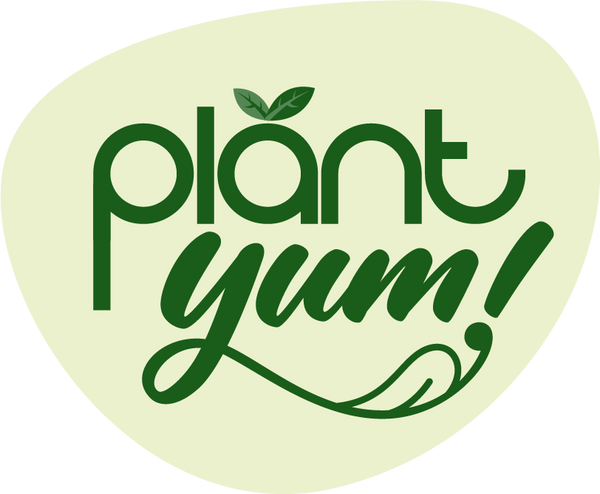
Why Plant-Based is Better for the Planet (and Us!)
Share
Our food choices directly impact the environment. Studies show that plant-based diets use significantly less water, land, and fossil fuels compared to animal-based diets. For instance, the University of Oxford found that going vegan could reduce food-related greenhouse gas emissions by up to 73%. Shifting even partially toward a plant-forward diet can help lower deforestation rates and reduce biodiversity loss. It's a simple switch with a major ripple effect.
Key Takeaways:
- Up to 73% reduction in food emissions by switching to vegan diets
- Reduced biodiversity loss and forest clearing
-
Lower carbon and ecological footprint
🥦 Less Emissions, More Hope
Animal agriculture is a leading cause of methane and nitrous oxide emissions — gases far more potent than CO₂. According to the Public Health Collaboration UK, adopting a balanced plant-based diet reduces these emissions dramatically. Livestock farming alone contributes nearly 14.5% of all global greenhouse gases. Plant-based foods, on the other hand, have the lowest emissions intensity. The fewer the emissions, the better our shot at slowing climate change.
💧 Saving Water, One Meal at a Time
Producing a single pound of beef requires over 1,800 gallons of water, but it's not just meat—dairy is a major water consumer too. It takes about 1,000 liters of water to produce just 1 liter of cow's milk (Source: Water Footprint Network). In contrast, plant-based alternatives like oat milk or soy milk use up to 10x less water.
By shifting away from meat and dairy, you're helping conserve one of Earth’s most precious resources. As global water scarcity rises, every conscious meal makes a difference.
✅ Quick Facts:
- 1 glass of cow’s milk = 120 liters of water
- 1 glass of soy milk = 28 liters
- 1 glass of oat milk = 10 liters
Why It Matters:
- Lentils use ~250 gallons per pound vs. beef at ~1,800 gallons
- Helps combat global freshwater scarcity
-
Reduces water pollution from livestock runoff
🌾 Reclaiming Land and Reducing Deforestation
The bulk of global agricultural land is used not to feed humans but to grow feed for livestock. By reducing meat consumption, we free up land for rewilding, reforestation, or growing more sustainable crops. A PNAS report highlights that plant-based diets could reduce global farmland use by over 75%. This means more space for nature, fewer forests cut down, and better air quality. It's a win for ecosystems everywhere.
Impact at a Glance:
- 3/4 of farmland could be freed with plant-based diets
- Supports biodiversity and wildlife
-
Helps reverse deforestation and land degradation
🧠 Better for Our Bodies Too
Aside from environmental perks, plant-based diets are rich in fiber, vitamins, and antioxidants — linked to reduced risks of heart disease, obesity, and certain cancers. Research published in Frontiers in Nutrition notes that these diets improve gut health, lower inflammation, and support immune function. Plant-forward lifestyles are not only better for the Earth but also for our longevity and quality of life. Healthier people, healthier planet.
✅ Small Shifts, Big Impact
You don’t need to go 100% vegan overnight. Replacing a few meals each week with plant-based alternatives makes a meaningful difference. Every dairy-free coffee or meatless lunch helps reduce pressure on the environment. These small steps accumulate into long-term, measurable climate action. The key is progress, not perfection.
Easy Steps to Start:
- Start with one plant-based meal a day – Breakfast is a great place to begin.
- Swap dairy with plant-based alternatives – Try oat, soy, or coconut milk in your tea, coffee, or cereal.
- Explore plant-based proteins – Incorporate lentils, chickpeas, tofu, and beans into your weekly meals.
- Try meatless Mondays – Dedicate one day a week to eating fully plant-based meals.
- Read food labels – Look for dairy-free and plant-based indicators to make mindful choices.
- Plan ahead – Stock your pantry with plant-based staples so you're never short on options.
- Experiment with new recipes – Discover how delicious and satisfying plant-based cooking can be.
Also Read - https://plantyum.in/blogs/plant-yum-blog/understanding-lactose-intolerance-and-its-symptoms
🛒 Support the Movement with Smarter Choices
Choosing plant-based products that are convenient, tasty, and eco-conscious makes the journey easier. At Plant Yum, our range of instant dairy-free options — like Coconut Milk Powder, Rice & Oats Creamers, and Tea/Coffee Premixes — help you stay committed without compromise. Every product you choose supports a planet-positive lifestyle. Join the movement — your plate is powerful.

1 comment
Love how this post breaks down the real impact of plant based choices. It’s amazing how small swaps can make such a big difference for the planet. I also found some great eco friendly living tips at SheMed’s blogs that go perfectly with this message.